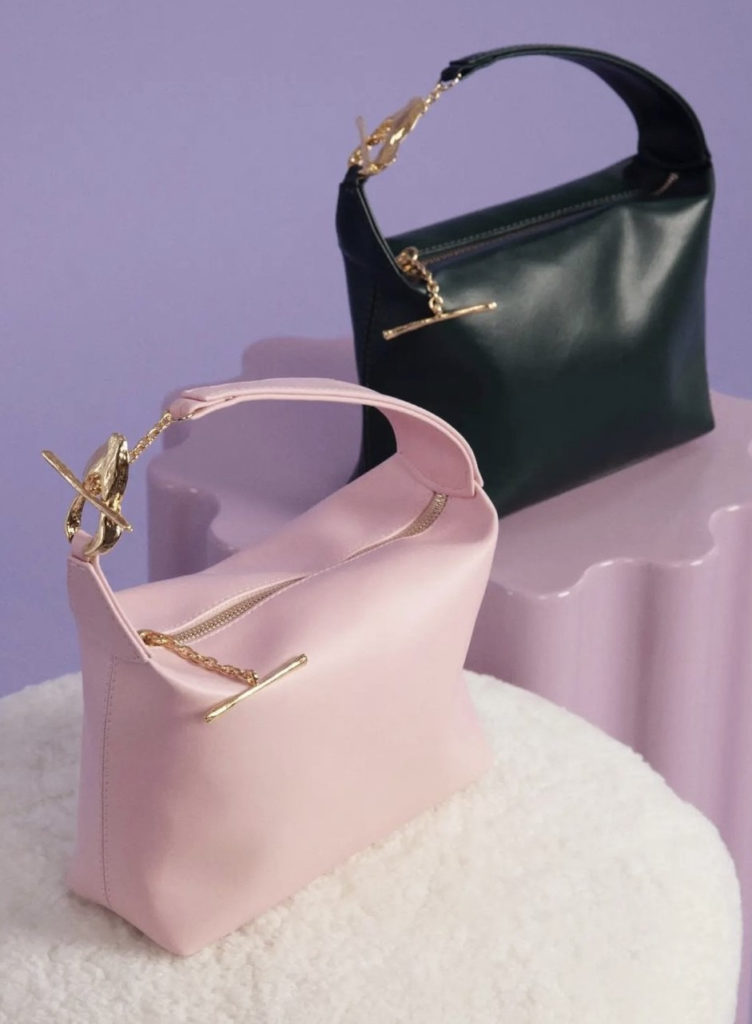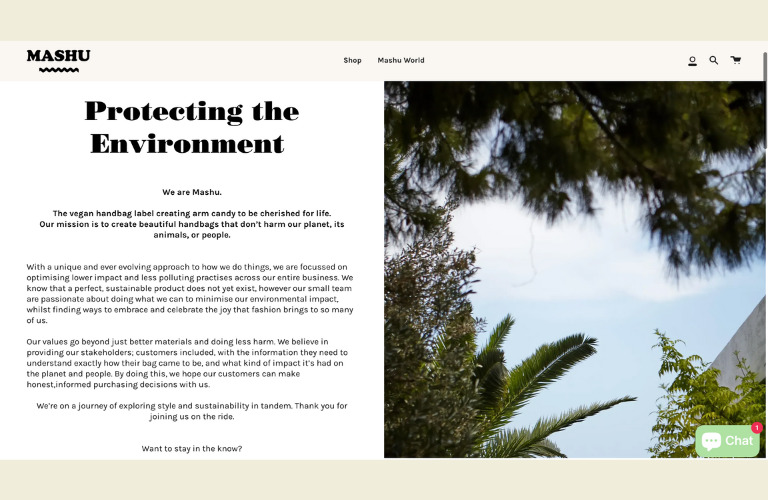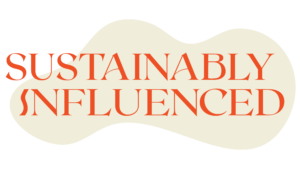Sustainable and Vegan Fashion: A Conversation with Ioanna Topouzoglou, Creative Director of Mashu
Bianca Foley
Mashu is a sustainable fashion brand known for its luxurious vegan leather bags. Founded in 2017 by Ioanna Topouzoglou, Mashu aims to combine style, sustainability, and ethical production practices. The brand is committed to transparency, using eco-friendly materials, and supporting local artisans in Greece.
The brand stands out in the sustainable fashion space for its dedication to creating vegan and cruelty-free products without compromising on quality or design. They were one of the first to be PETA approved vegan and have been a leader in the movement towards conscious and compassionate fashion. Mashu’s bags are carefully crafted with a focus on sustainable innovation, durability, and timeless aesthetics.
Today we are speaking to Ioanna Topouzoglou, the Creative Director of Mashu, to gain insight into the brand’s sustainability practices, commitment to transparency, and challenges in the industry. Ioanna shares Mashu’s approach to sustainable fashion, the importance of transparency in the supply chain, how the brand caters to the growing demand for vegan and cruelty-free fashion, and her vision for the future of fashion.
Hi Ioanna, thank you for joining us today. Can you start by telling us more about the plant-based materials you use in your products? How did you decide to incorporate them into your designs, and what are the benefits of using these materials compared to traditional materials?
Ioanna: Absolutely! At Mashu, we are proud to use a variety of PETA approved vegan, plant-based materials in our bags. Our current collection includes Apple leather, Corn leather, Grape leather, and Pineapple leather. These materials are derived from agricultural waste, and we believe in turning this waste into a valuable resource for both the environment and the farmers and producers involved. For example, our Apple leather is made from waste collected from the apple juice industry in Tyrol, Italy. They collect all the pulp and leftover fruit from the juicing process and transform it into this innovative material. Similarly, our Grape leather is a byproduct of the wine industry in Italy, where leftover skins and seeds are repurposed to create the material we use.
The decision to incorporate plant-based materials into our designs was driven by our desire to create responsibly produced, contemporary handbags that align with our vegan principles. There are numerous benefits to working with these innovative materials compared to traditional ones like leather. From an ethical standpoint, it was crucial for us to avoid using materials derived from animals. Traditional leather, especially the soft supple leathers used in luxury handbags, comes from calf leather, which involves animal harm. Additionally, leather production is not sustainable. The process involves multiple applications of chemical additives, which harm the environment and human health, and make the material non-biodegradable. Moreover, animal husbandry contributes significantly to climate change. By opting for plant-based materials, we aim to address these concerns and promote sustainable alternatives.


That’s fascinating, Ioanna. It’s great to see how Mashu is actively addressing both ethical and sustainability aspects. Can you explain the concept of cradle-to-cradle materials and how you ensure the sustainability of your products throughout their lifecycle?
Ioanna: The concept of cradle-to-cradle materials revolves around the idea that a product or its components can be continuously recycled or used to create another product. At Mashu, we carefully select materials that meet sustainability criteria for each collection. Every material used in our bags is 100% vegan and chosen for its sustainable qualities. We work with plant-based materials derived from agricultural waste, giving a new life to this resource and adding value for farmers and producers. Additionally, we incorporate recycled materials such as deadstock satin, recycled cotton, and recycled polyester made from ocean plastic waste.
To ensure sustainability, we start at the supply chain level. We gather as much information as possible from our material suppliers about how and where the materials are created. This allows us to understand factors like recyclability and biodegradability, enabling us to map out the lifecycle of our products. We consider our suppliers as an extension of the Mashu team, and we ensure they uphold the same values we have in our own office. By maintaining transparency and trust, we can work together toward sustainable goals. We even share product traceability information on each product page to provide transparency to our consumers.
We also focus on the lifespan of our bags beyond their production. We offer a complimentary repair portal, where customers can get free repairs on their bags for life. This encourages people to wear their bags for decades, promoting longevity over disposability. When a bag reaches the end of its lifespan, we have ensured that all bags can be recycled, and some even partially biodegrade. Our future goal is to establish our own bag recycling capability.
That’s fantastic. It’s evident that Mashu is dedicated to ensuring transparency and sustainability at every step. Speaking of transparency, how does Mashu maintain transparency in its supply chain, and what steps do you take to monitor the sustainability practices of your suppliers?
Ioanna: Transparency is key for us, especially in an industry where greenwashing can be prevalent. We believe in providing evidence to support our claims and being honest about how our bags are made. Through transparency labels powered by the Renoon App, we share information about our bags, even if they are not yet deemed “perfect” from a sustainability standpoint. These labels are just the beginning, and we plan to introduce more transparency solutions in the near future.
To monitor our suppliers, we undertake thorough due diligence before working with any partner. We request certifications such as ISO or GOTS and ensure that our suppliers read and sign our Mashu code of conduct agreement. This agreement covers various aspects, including wages and working conditions, animal welfare, and environmental management. By maintaining a strong relationship with our suppliers and upholding a code of conduct, we achieve transparency and trust. These efforts contribute to the transparency we share with our customers as well.
Interviewer: That’s commendable, Ioanna. It’s refreshing to see a brand committed to transparency and ethical practices. Moving on, there has been a growing interest in vegan and cruelty-free fashion in recent years. How does Mashu cater to this market, and what challenges do you face in sourcing materials and manufacturing your products?
Ioanna: Since our inception in 2017, Mashu has been proudly PETA approved vegan. We were one of the first vegan accessory brands, and we have always prioritized ethical production. Our mission is to demonstrate that style and sustainability can coexist harmoniously. Despite the recent growth driven by the rise in veganism and sustainable shopping, we have remained true to our authentic values. We continue to be a 100% vegan, small batch brand, ensuring no overproduction or waste. We work with a local family-run business based near our offices in Athens, supporting local artisans. Our commitment includes providing fair wages, sustainable materials, responsible production, and waste management, long before these practices became mandatory or popular marketing strategies.
It’s important to note that vegan fashion doesn’t automatically mean sustainable. Many vegan brands use materials that aren’t necessarily sustainable. At Mashu, we educate and provide transparency to potential customers about the composition of our bags, enabling them to make informed purchasing decisions based on their personal values.
In terms of sourcing materials, our biggest challenge is the extensive research and development (R&D) required. While a material may seem sustainable initially, a deeper evaluation may reveal aspects like high PU usage, energy and water consumption, or limited recyclability. As sustainable innovation progresses rapidly, we strive to stay up to date. What may have been the best material in 2021 may no longer hold that status in 2023. We constantly evaluate and test materials to ensure our vegan leather bags are as durable as their genuine leather counterparts. Another challenge lies in the structure of the materials themselves. Some plant-based leathers may work well for soft bag designs but not for more structured totes. As these materials are relatively new, testing and tweaking are necessary to achieve durability and quality.
Mashu is at the forefront of sustainable and vegan fashion, addressing challenges and constantly striving for progress. Finally, what do you envision for the future of fashion? How do you see the industry evolving in terms of sustainability and ethical practices, and what role do you see Mashu playing in this shift towards more conscious fashion?
Ioanna: The future of fashion appears to be moving towards a more conscious way of doing business, although progress may be slow. There is a significant amount of greenwashing in the industry, making it challenging for customers to distinguish truly sustainable companies from those seeking marketing opportunities. However, I welcome the incoming legislation that will enforce greater honesty and hopefully foster positive change at a faster pace within the industry.
I believe another significant shift will be the increased focus on businesses calculating their emissions and working towards achieving net-zero goals in the coming years. As both a brand owner and a conscious consumer, I value greater awareness and transparency in this regard. At Mashu, we are constantly evolving and learning. We never stop thinking about innovative ways to create our bags and share our story in the most responsible and transparent manner possible. We strive for continuous progress, rather than perfection, and we have numerous goals to achieve in the years to come. Most importantly, we want to celebrate the fashion and design industry we love while ensuring it is much kinder to our mother earth, the most crucial stakeholder of all.

